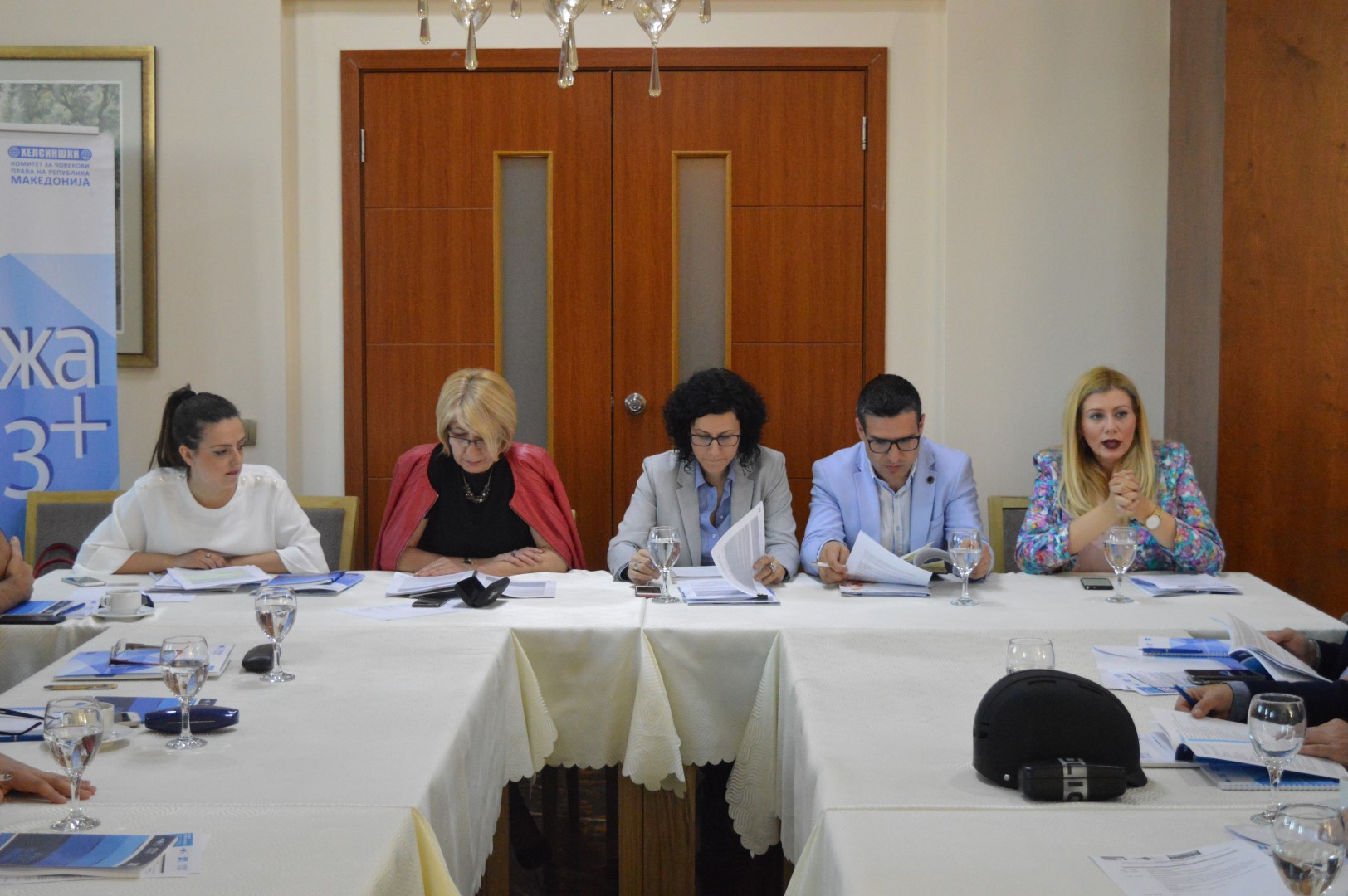
Network 23 organized an expert workshop today, focused on the European Commission’s Report on the Republic of Macedonia.
The general conclusion of the discussion is that the EC Report reflects the real situation in the Republic of Macedonia. Significant progress has been made in the political criteria and Chapter 23 compared to the previous report in November, 2016, when Macedonia was described as a captured state. The adoption of the Strategy for Reform in the Judicial Sector is welcomed, but the implementation of the guidelines set out in the Strategy remains to be seen, through the adoption of specific legal solutions and their implementation.
An introductory speech was given by Ardita Abazi Imeri from EPI, Slagana Taseva from Transparency International Macedonia, Natali Petrovska from the Coalition All for Fair Trials, Miroslav Draganov from the Institute for Human Rights and Aleksandar Nikolov from Zenith.
Ardita Abazi Imeri pointed out that it is crucial for Macedonia to maintain and deepen the level of reform, which is highlighted in the report. “The EC Report brings us a positive outlook, but there needs to be a realistic reward. The recommendation restores the effectiveness of the policy of conditionality and gives Macedonia the incentive to carry out the reforms.”
Slagana Taseva stressed out the positive outcome of the EC recommendation that is the greater involvement and oversight by the EU, especially in the eventual negotiation process. “But the situation with regard to corruption is very bad at the moment. It is necessary to take decisive steps in the fight against corruption.” Taseva added.
There is a Strategy for Reform in the Judicial Sector, which is good, but the implementation is far from over, said Natali Petrovska. “The European Commission gives us support for the direction and will to reform, but the real implementation of the reforms is yet to come. There are changes in the way judges judge in SPP cases, but this is more of a political pragmatism than of any changes in the sector.”
With the case that the real implementation of the Strategy is yet to come, Miroslav Draganov agrees as well. He emphasizes that according to the Action Plan, the adoption of the laws is envisaged by September, which means that they will be voted through the summer. “But some legal solutions will come into force by 2020. Which means that, if the selection criteria for judges is increased, in the meantime, judges will be selected on the basis of lower criteria. This will affect the effectiveness of the reforms, because those judges will be already selected.” Draganov added.
The discussion also highlighted certain problems with the reforms on the monitoring of communications. According to Aleksandar Nikolov, the European Commission supports the reforms in this area, proposing the Operational-Technical Agency as a solution. “However, the Report does not point out that this solution does not completely remove the access to the communications of the Ministry of Interior/UBK, as well as the collected metadata. Control over the monitoring of communications is also troubling, as MPs do not have adequate knowledge of the equipment and procedures in order to effectively monitor them.” said Nikolov.
Representatives of think tanks, civil society organizations and the Ministry of Justice participated in the discussion.
The Network 23 project was implemented by the European Policy Institute, in cooperation with the Helsinki Committee for Human Rights in the Republic of Macedonia. The project is financed by the European Union.